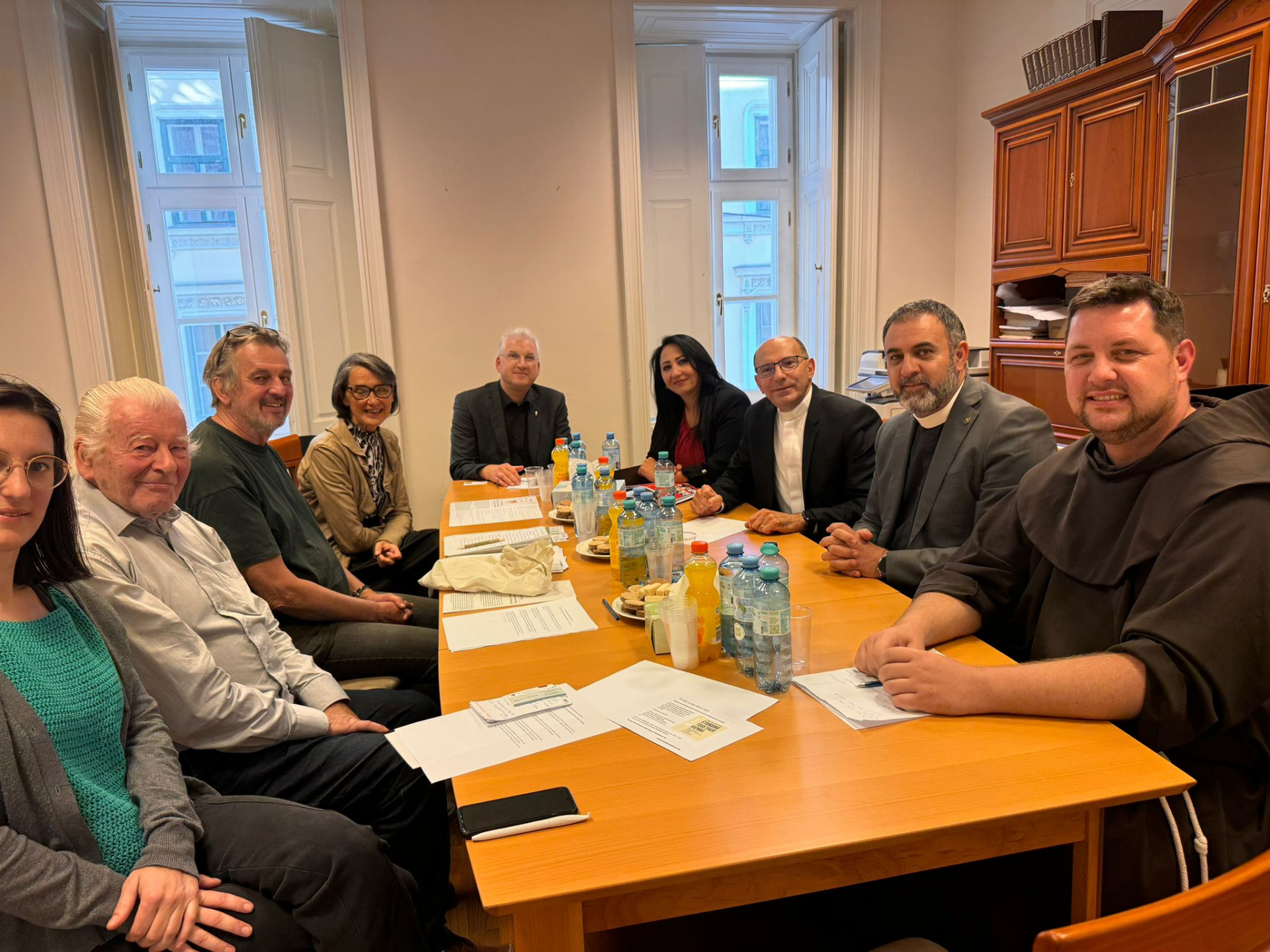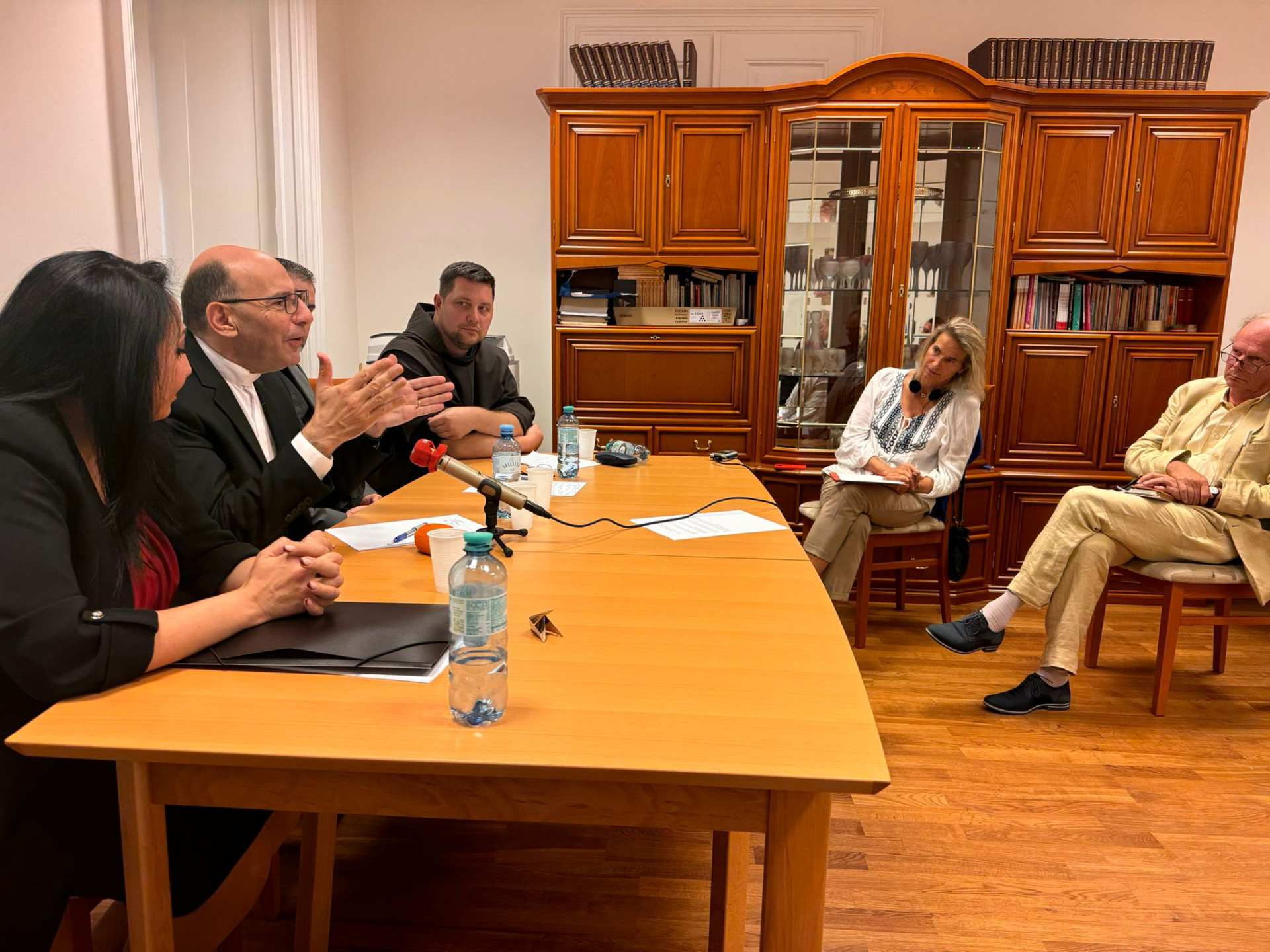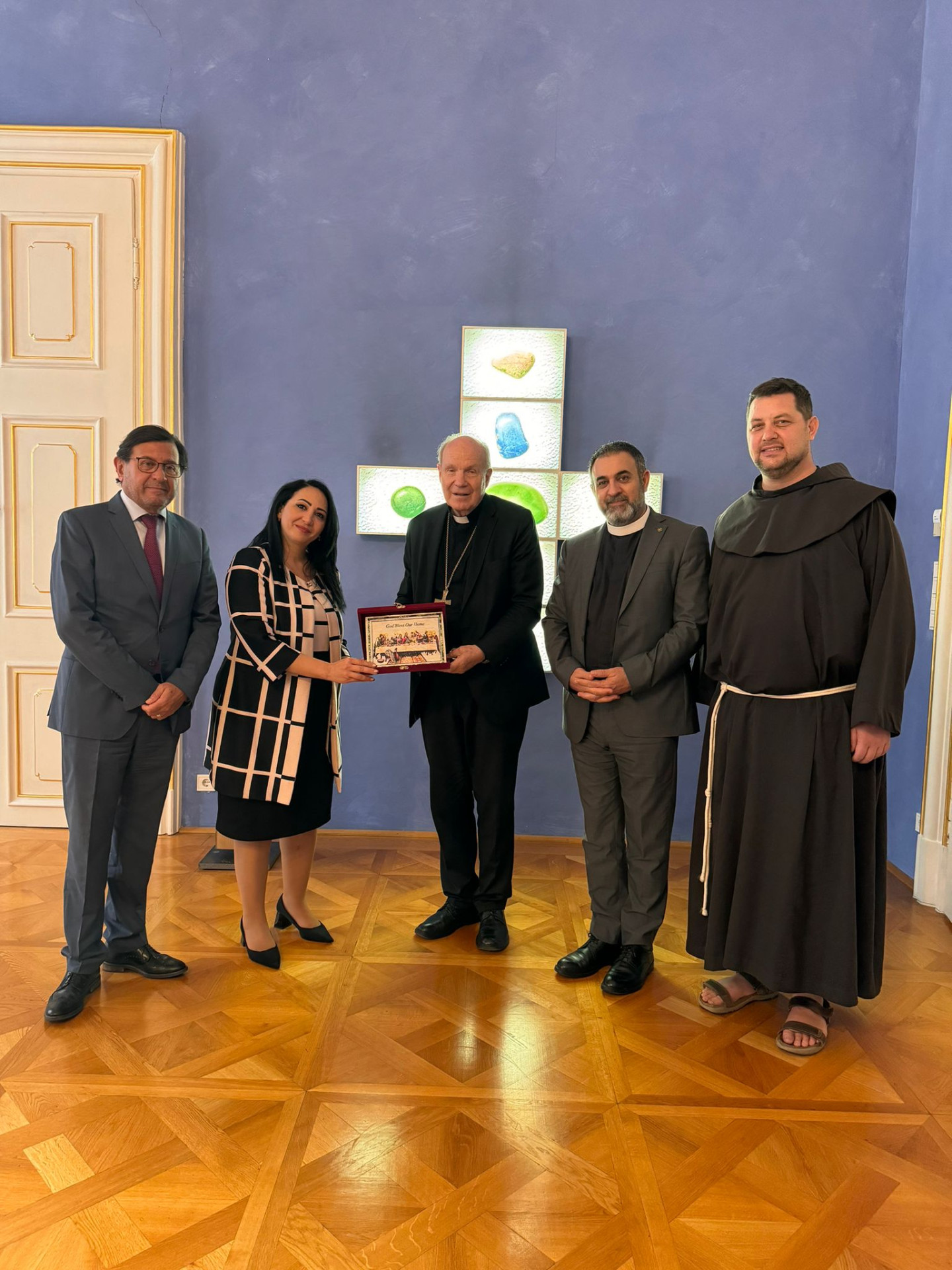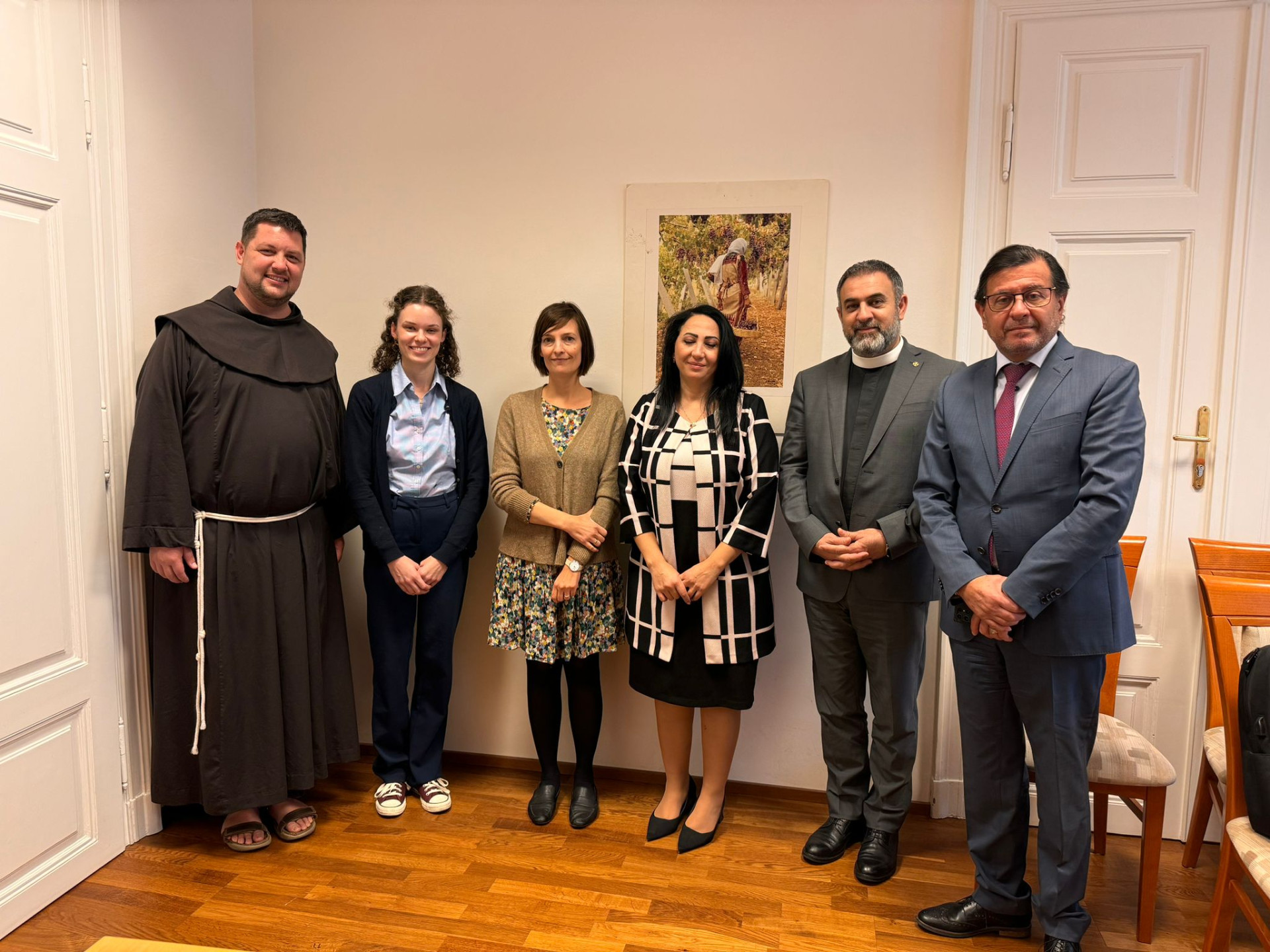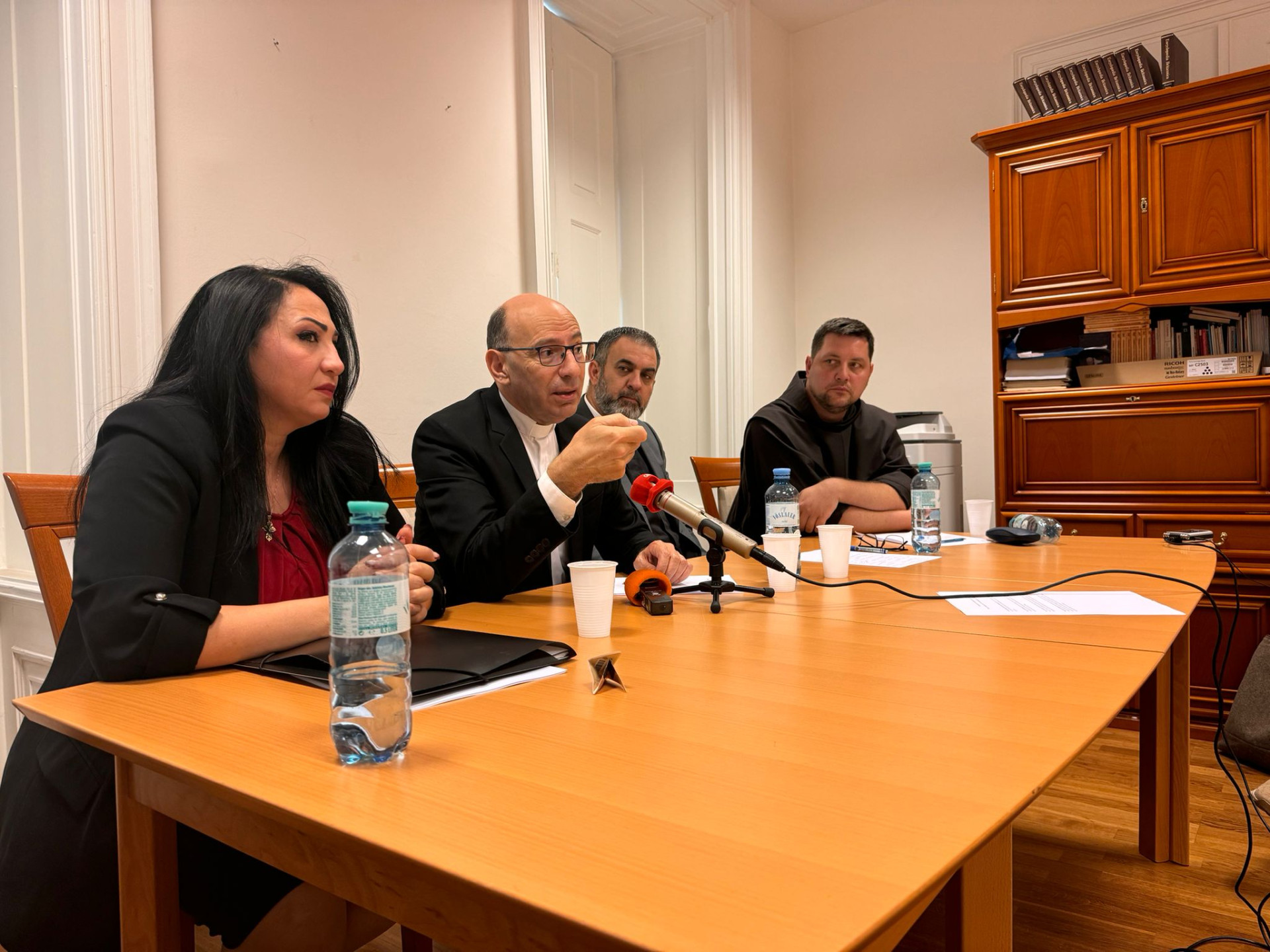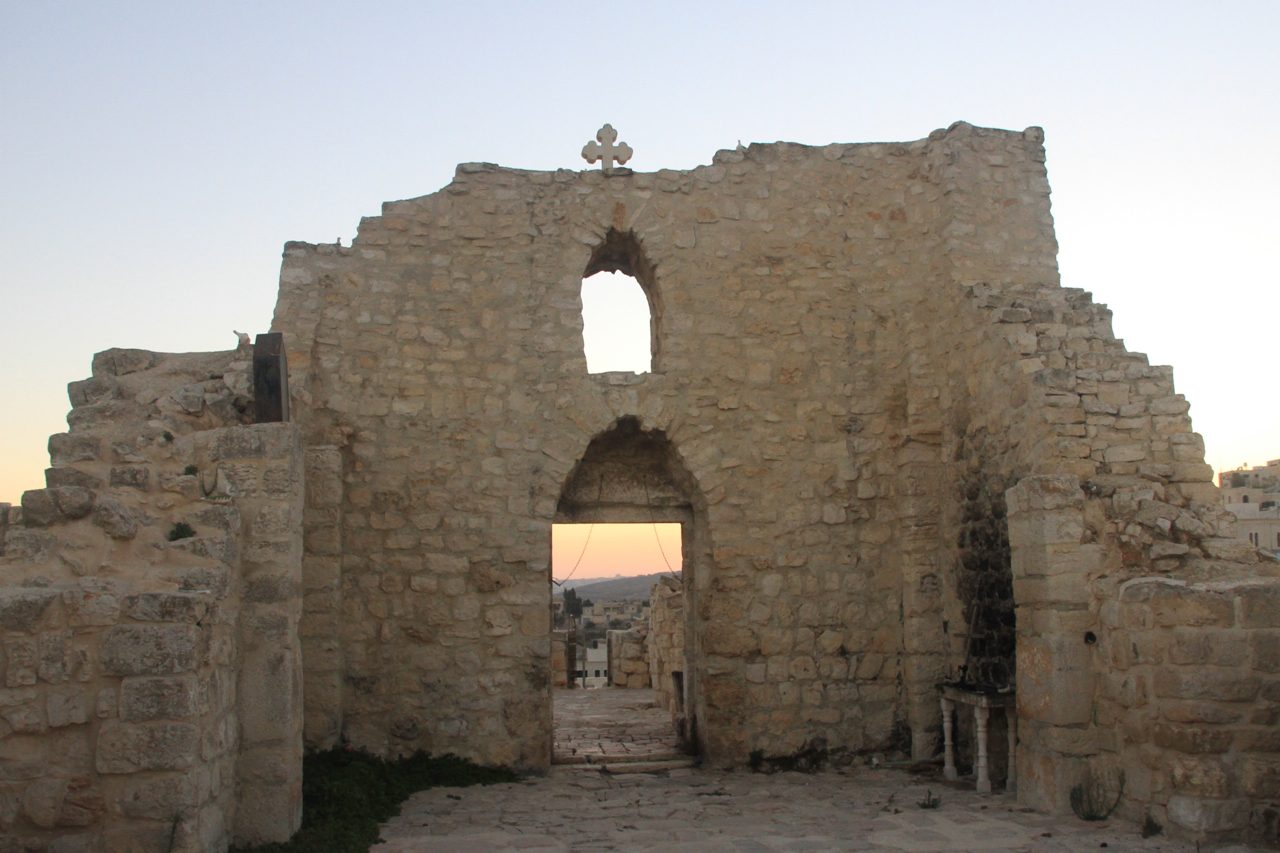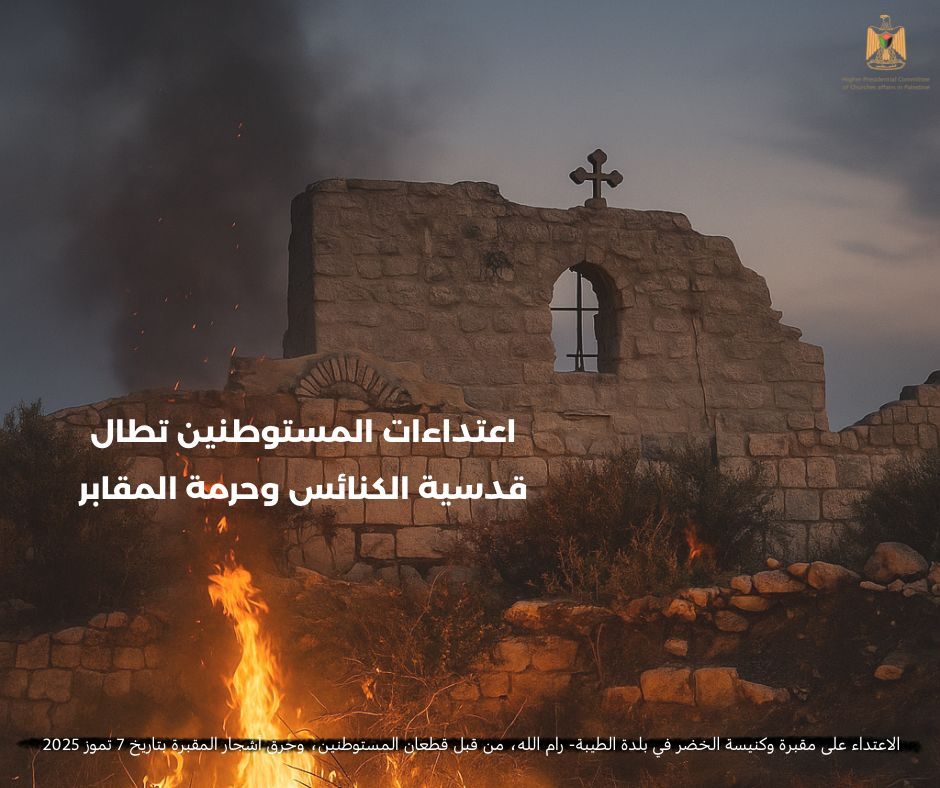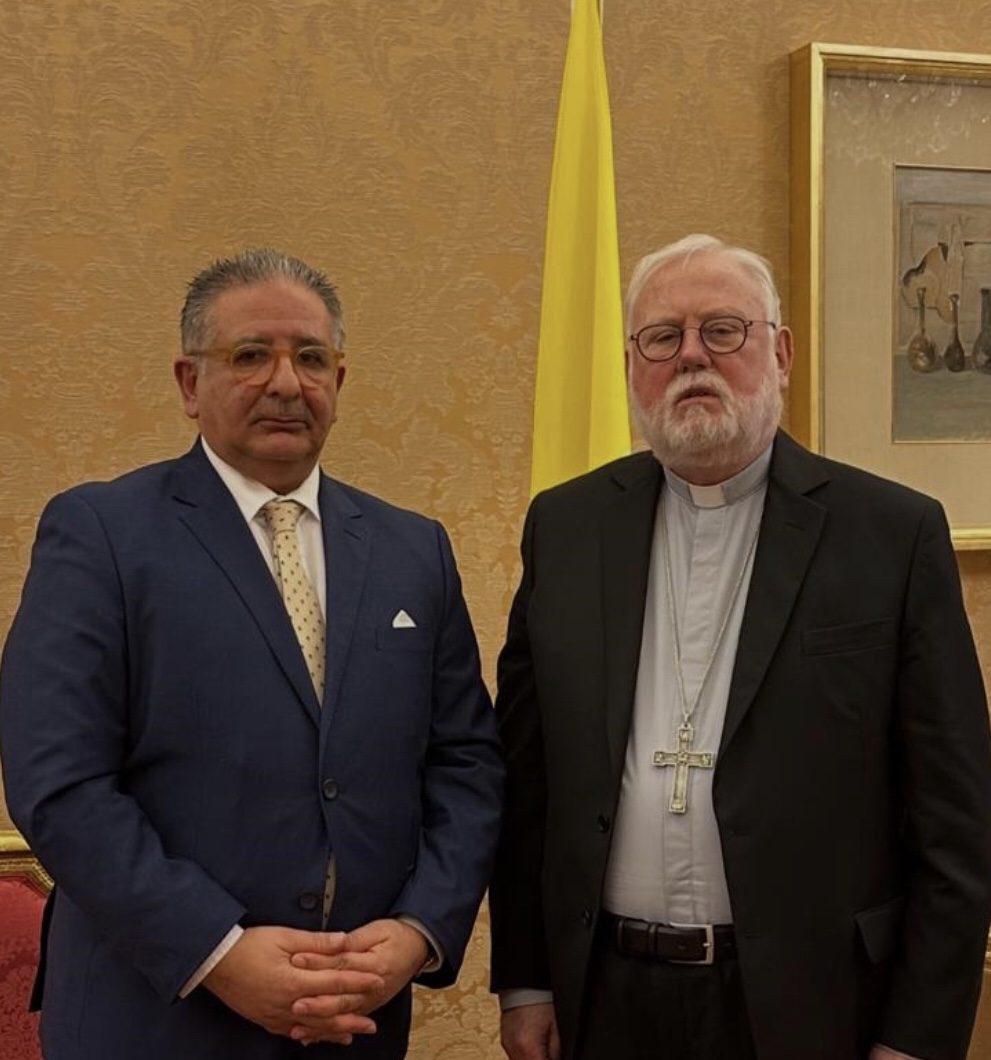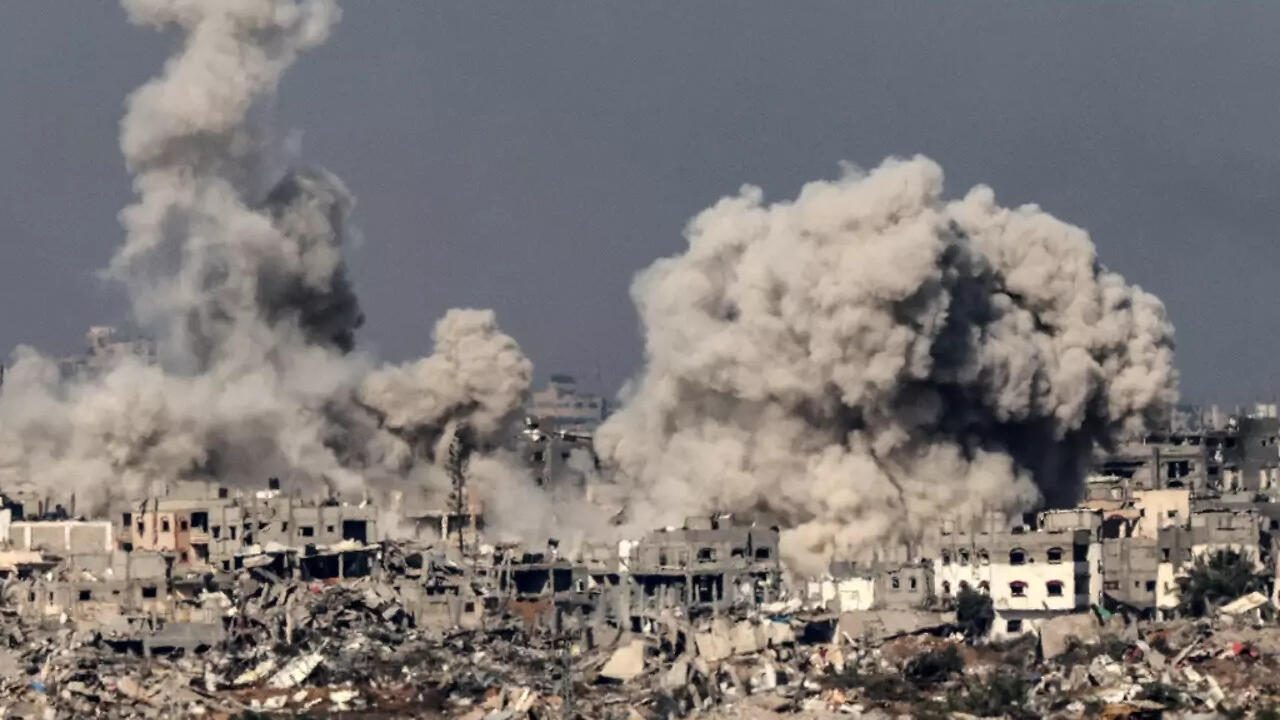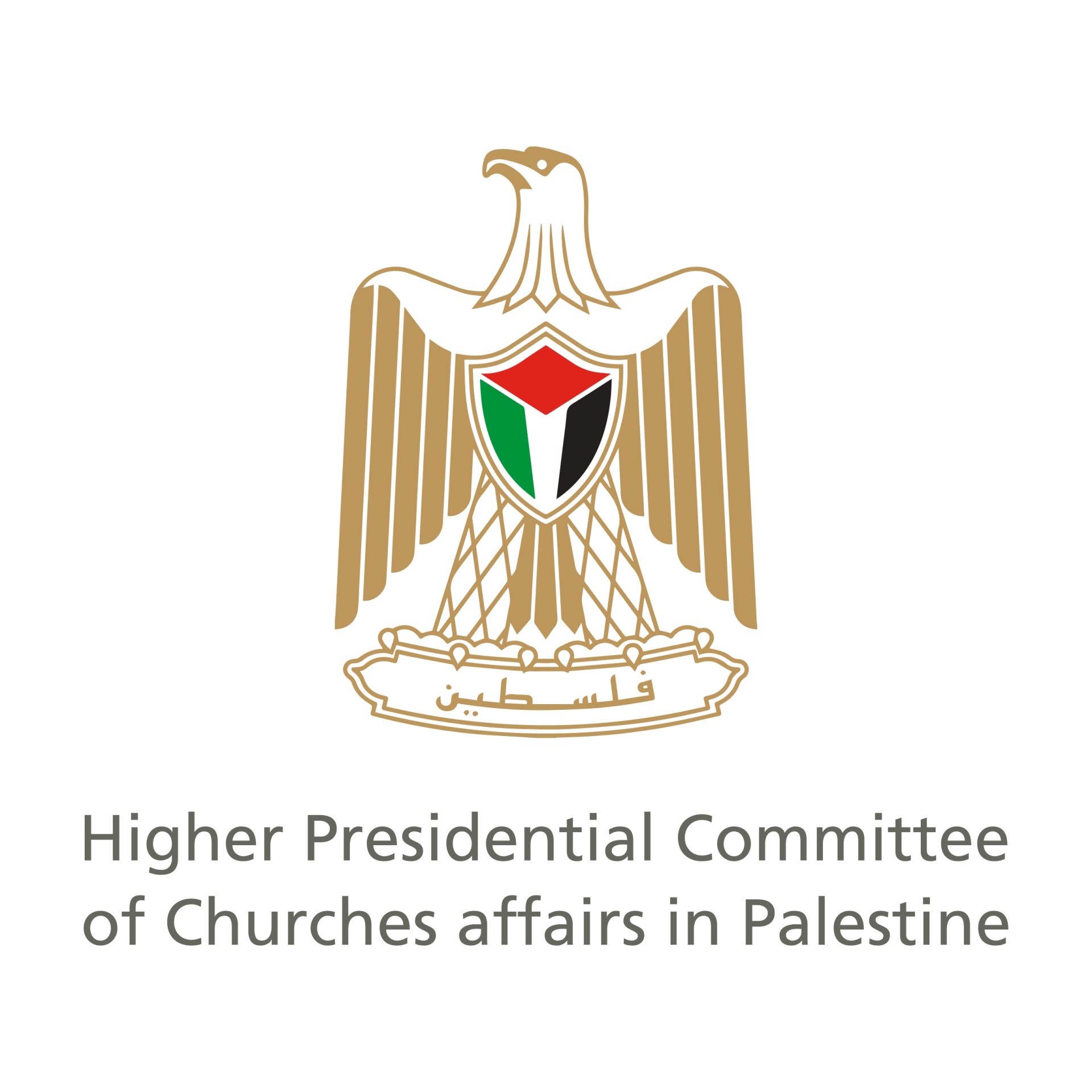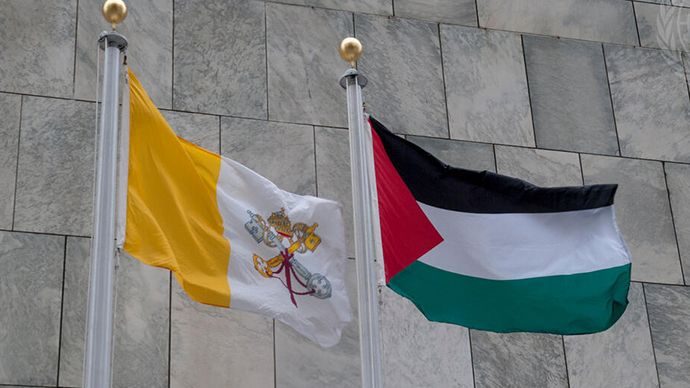The Higher Presidential Committee for Church Affairs in Palestine has embarked on an official European tour to rally diplomatic and ecclesiastical support to bring to an end Israel’s war on Palestine and champion the rights of the Palestinian people. The delegation includes Ambassador Amira Hanania, member of the Higher Presidential Committee for Church Affairs and its representative in Europe; Reverend Dr. Mitri Raheb, founder and director of Dar al-Kalima University; Reverend Dr. Fadi Diab from the Episcopal Church; Father Sandro Tomasevic, advisor of the Custody of the Holy Land; and ambassador of Palestine to Austria, Salah Abdel Shafi.
The delegation has engaged with key religious and political figures, including Cardinal Christoph Schönborn, the Catholic Archbishop of Vienna; Metropolitan Arsenios Kardamakis of the Greek Orthodox Church; and representatives from the Austrian Ministry of Foreign Affairs’ Middle East and North Africa Office. These discussions have centered on the alarming state of affairs in the region, focusing on Israel’s genocidal war in Gaza, which has persisted for nearly a year, as well as the ongoing daily Israeli violations and crimes in the West Bank and occupied Jerusalem—particularly their impact on the Christian community in the Holy Land.
Expressing deep concern, the delegation lamented the failure of international efforts to end the war on Gaza and the West Bank and urged decisive action to compel Israel to stop its systematic extermination of the Palestinian people. They demanded an end to the Israeli occupation, stressing that Israel’s actions violate international law and conventions, while the international community remains largely silent, offering no effective deterrent. The delegation highlighted the unfolding humanitarian catastrophe in Gaza, where Israeli occupation forces is deliberately targeting thousands of civilians seeking refuge in shelters, schools, places of worship, and hospitals, all while blocking access to essential food and medical supplies.
In these meetings, the delegation also warned of the grave consequences of ongoing settlement expansion, crimes committed by Israeli occupation authorities, and settler terrorism in the West Bank. They stressed that this escalating situation threatens peace and stability in the region. The delegation highlighted the sure in settler-perpetrated crimes, which endanger Palestinian lives and property, as well as the repeated violations and attacks on Muslim and Christian holy sites. They further underscored the daily invasions of Israeli occupation forces into Palestinian cities and villages, the imposition og military checkpoints and gates that fragment Palestinian territory, and raised concerns over the destruction, confiscation, and Judaization of Palestinian archaeological sites.
The delegation made a powerful call for justice, equality, and the need to intensify international efforts to secure a lasting peace in the Middle East. They reiterated the urgent necessity of implementing a two-state solution, with an independent Palestinian state and Jerusalem as its capital, in line with international law. The delegation concluded by urging European churches to raise their voices more forcefully, to condemn the oppression, and to advocate for peace and justice.


